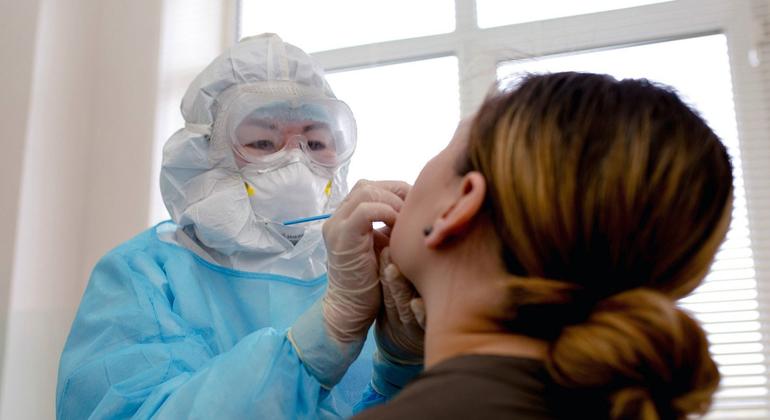UN health agency says ‘precautionary’ antibiotics are overused during Covid-19 pandemic


In a warning, WHO noted that although only 8% of hospitalizations Coronavirus Patients also have bacterial infections that can be treated with antibiotics, A staggering three-quarters were given them on a “just in case” basis.
Never before during a global pandemic has the United Nations health agency recommended the use of antibiotics to treat COVID-19, it emphasized. WHO spokesperson Dr. Margaret Harris.
Viruses, not bacteria
“From the beginning the advice was very clear that this was a virus. So, it’s not that there are any guidelines or recommendations that clinicians go in this direction, but perhaps because people are faced with something completely new they are looking for any suggestions. whatever they think might be appropriate.”
According to the United Nations health agency, antibiotic use rates range from 33% for patients in the Western Pacific region to 83% in the Eastern Mediterranean and African regions. From 2020 to 2022, prescriptions decreased over time in Europe and the Americas, but increased in Africa.
Last hope
Data compiled by WHO also shows that most antibiotics are used in severely ill COVID-19 patients, a global average of 81%. Antibiotic use in mild or moderate infections shows significant regional variation, with the highest use rate in Africa, at 79%.
Worryingly, the UN agency found that the most frequently prescribed bacteria-killing antibiotics globally are those with higher antibiotic resistance (AMR).
“When patients need antibiotics, The benefits often outweigh the risks associated with side effects or antibiotic resistance. However, When not needed, they provide no benefit and pose risksand their use contributes to the emergence and spread of antibiotic resistance,” said Dr. Silvia Bertagnolio, head of the WHO unit responsible for surveillance, evidence and laboratory strengthening on AMR said.
No positive effects
The United Nations health agency’s report confirms that Antibiotic use “does not improve clinical outcomes for patients with COVID-19”.
Instead, their systematic prescribing “may be more harmful to people without bacterial infections, compared to people who do not take antibiotics,” WHO said in a statement.
“These data call for improved rational antibiotic use to minimize unnecessary negative consequences for patients and the general public.”
The findings are based on data from the WHO Global Clinical Platform on COVID-19, an anonymized clinical database from patients hospitalized with coronavirus infection. Data was obtained from 450,000 patients in 65 countries from January 2020 to March 2023.
Super bacteria
Antibiotic resistance threatens the prevention and treatment of growing infections caused by bacteria, fungi, parasites and viruses.
It occurs when these bacteria, fungi, parasites and viruses change over time and no longer respond to medication, making it more difficult to treat the infection and increasing the risk of the disease spreading, severe illness and death. As a result, the medication becomes ineffective and the infection remains in the body, increasing the risk of spreading it to others.
Antibiotics – including antibiotics, antivirals, antifungals and antiparasitics – are drugs used to prevent and treat infections in humans, animals and plants. Microorganisms that develop resistance to antibiotics are sometimes called “superbugs.”




